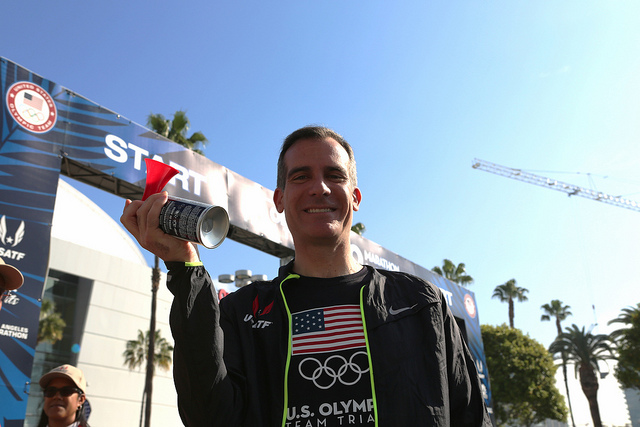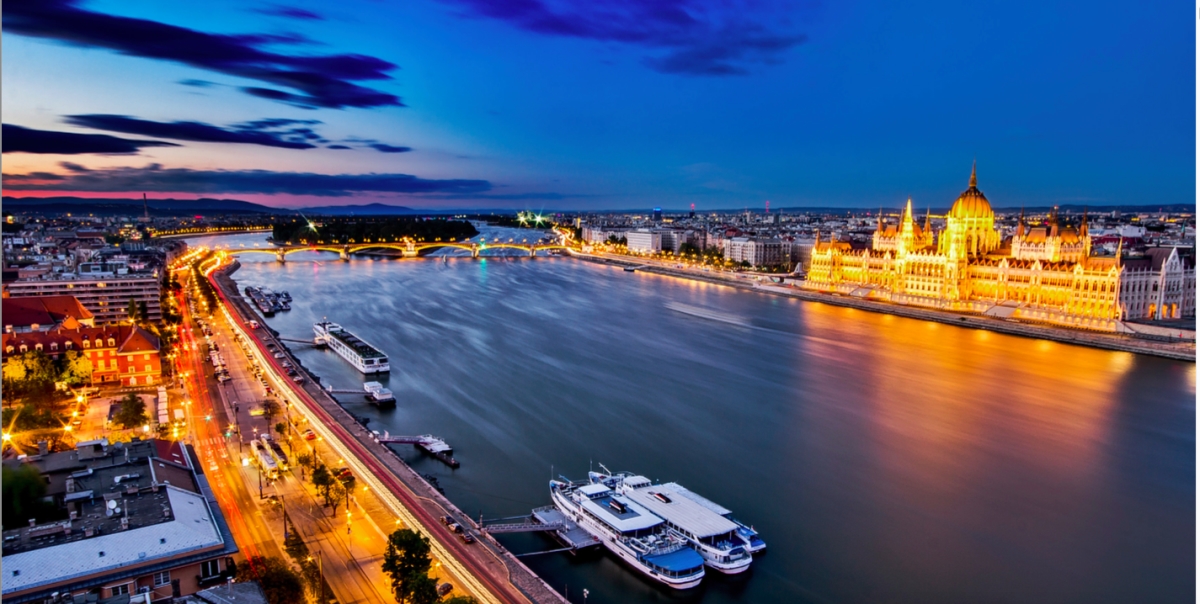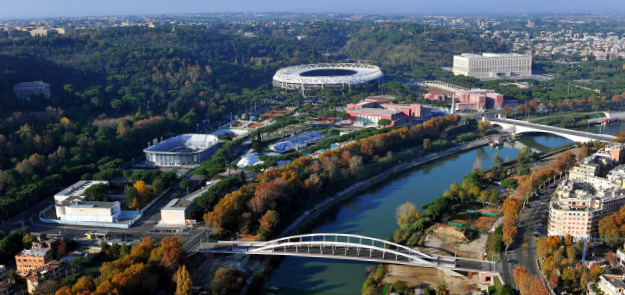In a western democracy such as the United States, it’s hard to get nine out of 10 people to agree on pretty much anything. Is the sky blue? Does the sun rise in the east? Is Donald Trump an idiot? A poll released Tuesday found that 88 percent of Los Angeles County residents want LA to play host to the 2024 Olympic Games.
Again, and for emphasis: 88 percent.
The International Olympic Committee, when it evaluates candidates for a Games, typically cares about one figure more than anything, and that is public support. The IOC, like each of us, wants to feel wanted, welcomed and encouraged.
This telephone poll, the first major independent survey to assess local Olympic support, was conducted by Loyola Marymount University and sponsored in part by Southern California-based public radio station KPCC. It underscores why — among many reasons — it’s now time for the IOC to take a good, hard look at returning its franchise to the United States for the first time in 28 years.
Once more: 88 percent.
Those results also stand as vivid contrast to the IOC’s messaging failure in advancing its purported Agenda 2020 reforms, a breakdown highlighted by a column written just four days ago by Paul Newberry of Associated Press, an Olympic veteran. The piece, quoting a Holy Cross college economics professor and others, suggested the Games are a “risky financial gamble” and a bid like LA was being unreasonable in looking at turning a 2024 surplus, just like the 1984 surplus, $232.5 million.
“… It’s difficult to see how hosting the Olympics would benefit Los Angeles,” Newberry wrote.
“Paris, Rome or Budapest, for that matter.
“This is a race where the losers get the gold.”
Olympic cost overruns are overwhelmingly a function of big construction tabs. In LA, 97 percent of the venues are already in place or are planned by private — again, private — investors (one venue outstanding: canoe slalom).
And that doesn’t include the new $2- to $3-billion LA Rams football stadium and complex in Inglewood, near LAX international airport. For sure, it would be ready — for free to LA Olympic organizers — way before 2024.
To the point that it’s difficult to see how hosting the Games would benefit LA: over the past 30-plus years, that $232.5 million has turned into more than $220 million in grants for youth sport. And the LA84 Foundation still has millions left.
This is why there’s 88 percent support for an LA Olympics: 1984, as experts agree, offers sustainable proof that the Olympics not only can but would be a good deal, for taxpayers and for the IOC.
“The data nerd in me — I have never seen one of my surveys have this much support for anything,” said Brianne Gilbert, associate director of the Thomas and Dorothy Leavey Center for the Study of Los Angeles at LMU as well as a professor at the university of both political science and urban studies.
The poll surveyed 2,425 people during the first six weeks of 2016; it was specifically designed to represent LA County’s extensive demographics, with respondents including blacks, whites, Latinos, Asian-Americans and “others.” It was translated into Spanish, Mandarin and Korean. Regardless of group, researchers found almost no difference in support. The poll’s margin of error: plus or minus 3 percent.
Opposition: 12 percent. (Math made easy.)
When the poll includes those who did not answer in the survey: 85 percent in favor, 11 against, 4 not answering.
To be blunt, 88 percent is the kind of number you might get when polling in a country with a very different form of government. Like, an autocratic system. Where maybe it might be better form to just fall in line.
An IOC-commissioned poll in December 2014 in China, measuring support for the 2022 Winter Games bid: 88 percent in Beijing proper.
The LA 88 percent figure is higher even than the result the IOC found when polling in Sochi ahead of the 2007 election that would give the Russian city the 2014 Winter Games: 79 percent.
Fun with numbers: a poll a year ago found that 85 percent of Russians trusted president Vladimir Putin, with experts saying that in the context of a real presidential election (not on the agenda until 2018) Putin would win with a result approaching 90 percent.
Those Sochi Games now come associated with a $51-billion figure. The Games in Rio this summer are running way, way over initial projections, too — now $10 billion or more in public and private money, with organizers searching high and low to cut about $500 million to balance a $1.85 billion operating budget.
That’s why this 2024 race is perhaps the most critical election in IOC history. Not just recent history but — ever. The IOC, when it picks a 2024 winner in September 2017, really has no choice: it has to go somewhere where the Games make hard-core financial sense and, critically, where it’s wanted.
The 88 percent figure also offers a fascinating trend line for the LA effort:
Before the early 2015 decision at which the U.S. Olympic Committee preliminarily chose Boston for 2024, the poll numbers in LA, depending on whether you wanted the LA city or USOC poll, were 77 or 78 percent.
Last August, a USOC poll put the yes-for-24-in-LA figure at 81 percent.
Now, 88.
A cautionary note: at 88 percent, is there any way for LA's poll numbers to go but down, even if a little?
Then again, who knows? It’s LA.
Raphael J. Sonenshine, a professor, author and expert on almost everything Los Angeles who is now executive director of the Pat Brown Institute of Public Affairs at Cal State-LA, said, “You cannot overemphasize what a success the 1984 Games was.”
He added a moment later, “It was a ridiculous thing to take on the Olympics the way LA did in 1984. It is still paying off. LA residents have actually seen a case where [a Games] still pays off and provides benefits years later.”
Compare the LA numbers to Boston. There, polls consistently reported in-favor figures in the 30s and 40s, and opposition at 50.
Indeed, the USOC — when Boston finally and mercifully sank last July into the death star — specifically said it “did not think that the level of support enjoyed by Boston’s bid would allow it to prevail over great bids from Paris, Rome, Hamburg, Budapest or Toronto.”
A side note: pretty much every round of dismal Boston polling produced glee not just from opponents but from many in the press, and in particular the New York Times, which — like it or not — often drives what happens in a lot of other outlets. Not that Boston didn’t deserve it. Even so, we live in a world fueled by considerable skepticism. So now in Los Angeles, the city that has twice (1984, 1932) played host to, and loves the Games, a poll comes out that documents that passion — and where is the mainstream coverage? Anything in the New York Times? Six paragraphs in USA Today?
Toronto, for the record, opted not to get in to the 2024 derby. Hamburg has since been voted out by referendum.
The IOC typically wants to see bids with public support at 70 percent or better.
Budapest? 57 percent “expressed support” for the Games, 70 percent said hosting would “make them proud.” Results, per the recently filed campaign bid book, based on a December 2015 poll of 2,000 residents of Budapest and three regional cities.
Rome: 71 percent in the Rome metro area, 75 percent nationally “expressed support.” Figures come from a January 2016 survey of 2,200 cited in the bid book.
Paris? 74 percent support in the city, 77 percent Paris region, 80 percent France. Source: January 2016 poll cited in bid book, no methodology or details offered.
For a little contrast and context, it’s worth recalling Chicago’s unsuccessful bid for 2016. That bid started with a poll that purportedly put support at 77 percent; subsequently, an IOC-commissioned poll fixed it at 67 percent. Rio and Madrid both came back in that IOC poll at 85 percent, Tokyo at 56 percent.
The IOC voted for 2016 in October 2009. Chicago went out first. Then Tokyo. Rio then went on to beat Madrid.
One final time: LA24, 88 percent.
LMU’s Gilbert said, “Believe me, we checked and double-checked to make sure. Because our name is on the line as well. People are just really excited about it.”






